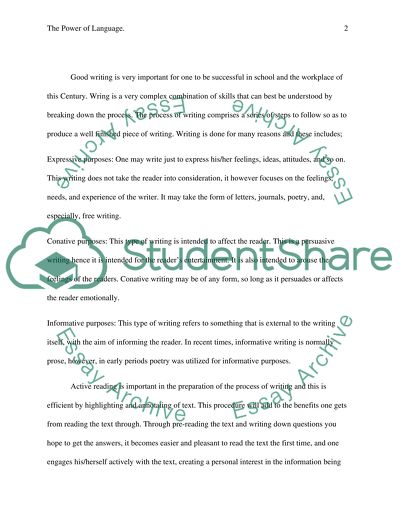Cite this document
(“The power of language Assignment Example | Topics and Well Written Essays - 1250 words”, n.d.)
The power of language Assignment Example | Topics and Well Written Essays - 1250 words. Retrieved from https://studentshare.org/literature/1697838-the-power-of-language
The power of language Assignment Example | Topics and Well Written Essays - 1250 words. Retrieved from https://studentshare.org/literature/1697838-the-power-of-language
(The Power of Language Assignment Example | Topics and Well Written Essays - 1250 Words)
The Power of Language Assignment Example | Topics and Well Written Essays - 1250 Words. https://studentshare.org/literature/1697838-the-power-of-language.
The Power of Language Assignment Example | Topics and Well Written Essays - 1250 Words. https://studentshare.org/literature/1697838-the-power-of-language.
“The Power of Language Assignment Example | Topics and Well Written Essays - 1250 Words”, n.d. https://studentshare.org/literature/1697838-the-power-of-language.


